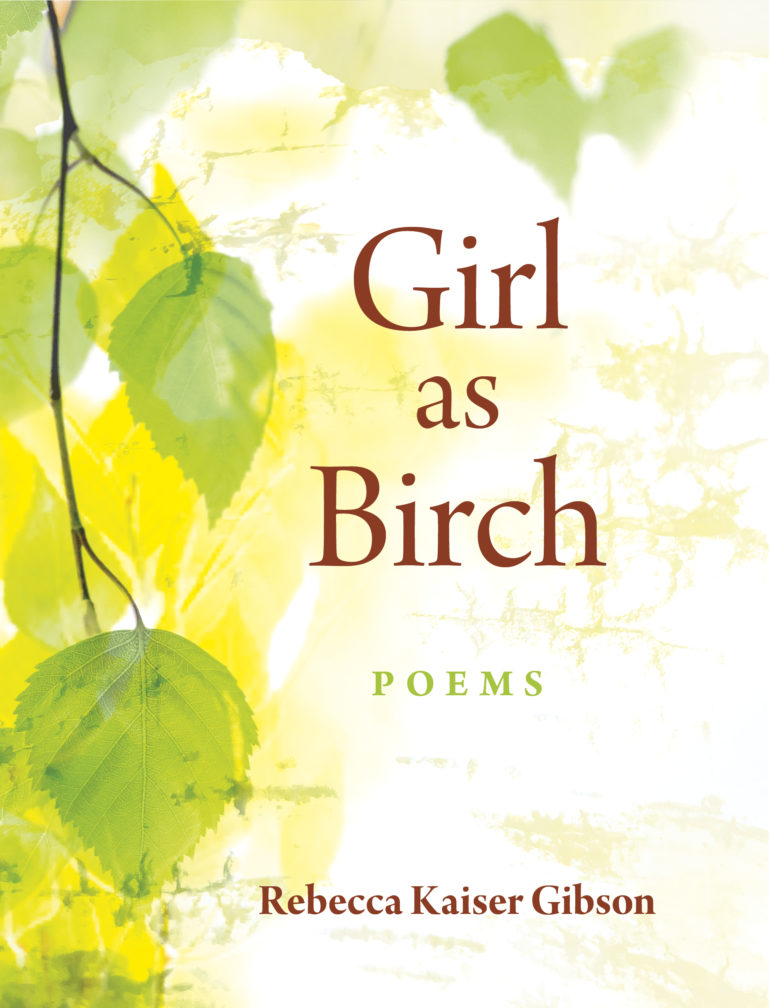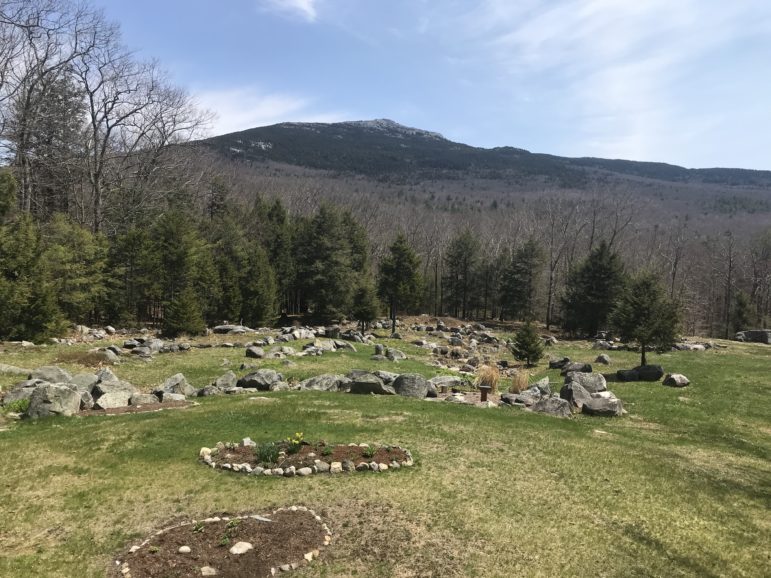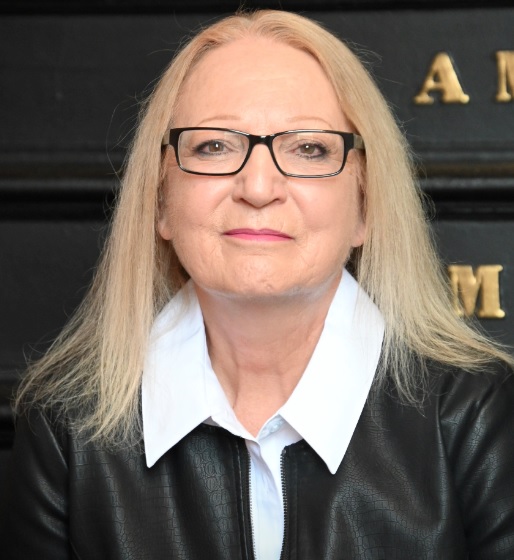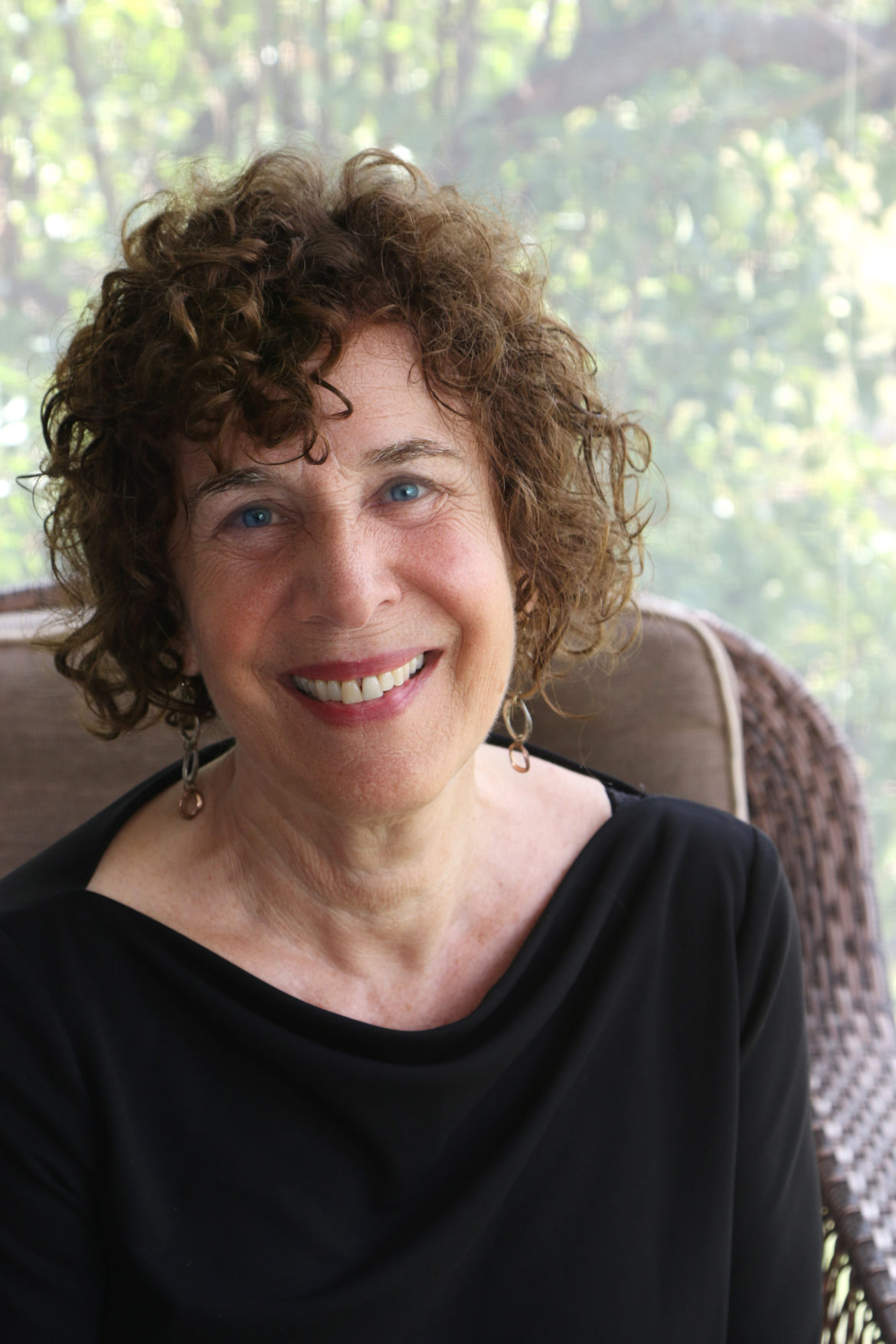By BEVERLY STODDART, A NH Writer’s Life
After meeting with Rebecca Kaiser Gibson, poet, and author of Girl as Birch, I drove home on a winding country road; I thought about her poems. They are brilliantly real and true, especially how brave Rebecca Kaiser Gibson is to write them. She is meticulous and gives us spaces and extra lines to allow us to breathe and consider the words she has crafted. Why brave? She speaks of “a (faulty) credo” in the namesake poem and tells us of how resilient we are as we are “pushed from the path / and springing back.” In “The Maid,” Rebecca pulls from a real-life experience as a young girl when she witnessed what appeared to be the maid having a miscarriage. With her creativity and wordsmithing, it is a riveting moment in time where we are there. Next, she takes us into a 1950s television program with “Whist, Whist, Whist” to contrast her skills.” Those of you who are of a certain age will recognize the meaning of this immediately. And then, in “Lilla, Once,” we learn of how a dear friend died and how she compares it to a breakdown on a busy city street.
We meet at her home in the Monadnock Region of New Hampshire, where a mountain is the backdrop. Charlie, her husband, is a sculptor, his beautiful metal works of art are on display inside and out. He serves us coffee from a French press. Rebecca has made a mango and nut-topped Christmas cake with permission from her daughter. Her face is framed with curls. She is thoughtful, friendly, and easy to begin to know. I count my blessings that I am there and able to dive into all the questions about the poems I have from Girl as Birch.

When I read this book, I thought you were sharing an idea you wanted me to find. Is it a search for the meaning of words or truth that you’re trying to express?
I think your question is more generous than I am, in the sense that I’m not thinking of sharing it. I’m thinking of finding it. I don’t know what it is. I’m sharing it with myself or something I sense is there. But I don’t get it yet until I write it, work it. It does seem like when I’m doing readings that there is some sharing going on, whether it’s the sharing of what I actually am trying to grapple with or with the other person connecting with their own life. That’s where the thrill and the discrepancy are.
I read your poems, and I think you’re taking me somewhere, like a crossword puzzle, left, right, and down.
That is what I’m sort of doing but not doing it in any other realm. The lines on the page are really important to me.
How would you describe your poetry?
Not formal. Dependent on sound and idea. The ideas aren’t submerged exactly, but they’re really the connection between sound, and there’s an underlying movement that I’m usually trying to track. In the readings, I’ve promised myself that I will do a different reading every time. I always read the first poem because people are interested in why it’s called Girl as Birch. I try to guess what this audience is going to be interested in, and I keep discovering different things.
That’s the mystery of poetry and how it comes about. How did you start writing poetry?
When I was some age, like nine, I took an empty cinnamon jar. I wrote a little poem about cinnamon. Later, I was madly in love with my English teacher, who one day wrote the word why on the blackboard. I wrote a poem about the letters and the way they looked.
And then I didn’t write for a long time, partly because my father didn’t really want me to write. He thought my writing was very dense. I think he thought it was too isolated. He was a lawyer. He wanted me to do something with people. The day I came home from his funeral. I was flying home from Washington; I thought, oh, now I can write. Where did that come from? I didn’t even know there was any restriction. I didn’t know I wasn’t doing want I wanted to do.
How do you determine the words per line, and why are there spaces in between?
It’s how I think I should read it. The spacing is like music or dance. Space also [is] for thinking. This first little group:
pretending
compliance pliant,
ancient lenience
Those are all descriptions about the same accommodation of girls and birches – having to accede to the forces. Then the break is, in retrospect, to undermine that accommodation. That belief system is faulty; it’s not true that you have to pretend. You don’t have to be pliant. The extra space is defining again the credo, which is whatever beautiful gesture it is, that’s alluring.
Those were the two lines that I pulled out.
I spend a lot of time with words and their derivation, and that helps me or leads me. Especially in the first part of the book, there’s a lot of breath spacing. Towards the middle part is the adolescent part. The first part is not only really young but also really deep. The middle part is more dealing with daily things. It’s more regular in format.
Are we looking at a young girl who is getting older, and then she’s a woman and everything else that falls in place with being a woman?
Probably not everything. Some of these poems, towards the end, were written a long time ago.
In “Oak,” I could imagine this man’s hand picking up the small child and comparing the weight to an azalea. Then ending with, “His newly noticed self, / her taproot.”
This is the story I was told about my father holding me. He was scared because I was so little. We had azaleas. I don’t remember how I came up with comparing her weight to an azalea, but the story was always focused on him trembling. What I think I got from the story and understood was the love of it, not just terror of dropping.
And the taproot means he’s deep, and he’s there for you.
The deep solid sustaining thing. Someone the other day who got the book said this is all about her father. Where is her mother? I have another book coming out that’s called The Promise of A Normal Life. It’s a novel. And the mother is definitely featured there. She’s not my mother.
Would you explain “Way Too Bold” for us?
I think that humiliation of putting on a swimsuit and being humiliated by the fact that she has thighs. “Exposed white thighs, spoke shame.” At nine, the level of embarrassment is high. Maybe I can hide, maybe I can go underwater, and I can beat my father, who is rowing slowly. He’s protecting me. The boat is creaky and dry, and worn out. It was a bet, too. I don’t remember winning the bet. I think I’m owed a dollar fifty.
“My own arms cleaved the green,” I love that line. “Out of sight, at last, / unmeasured triumph.”
I won the bet, and I won the release from embarrassment and from the quantification. I read this poem in a group somewhere, and I realized how much quantification there was. “At nine,” “I’ll swim the Whole Lake. / It’s a mile!” And then suddenly there’s no more measurement. It’s unmeasured. That’s a quiet little thing that’s going on.
You said earlier after your father had passed, you could write. He’s a pretty strong character in your life.
He may have still been alive when I wrote the first version of this.
“The Maid” is next.
She was a Black woman. “Her dark legs drying – / the bleeding done.” I think she had a miscarriage, and I came upon her in her room. I actually saw this when I was young. I don’t remember if she said anything or if I just attributed spiritual perspective. “This is happening because it’s your will, God.” I stood at the door and looked. I remember the trash can was light blue, and it did have roses painted on it. And then there was this blood or something in it. It took me a long time to get to that last line, “she stared / (as she must always have) / past me –.”
I don’t remember how I did that, but I really liked it. She was in a whole different world always, not just at that moment. I was unaware of her situation and any of the details of what it was like to be black in Washington, DC, in those years. My mother was an anesthesiologist. She left at 6:30 in the morning and came back at nighttime. There had to be someone there. She also liked having someone take care of the house and do the cooking. We grew up without anyone particularly paying attention to us.
What was her name?
There were so many maids. I think her name was Rebecca, but because my name is Rebecca, they changed her name. Can you believe it? She was called Louise. My mother was pretty hard to work for, very demanding. The maids changed frequently.
“Whist, Whist, Whist.” As soon as I read this, I got it immediately. Zorro.
Figuring out how to spell whist was funny. I looked up Zorro again, and that’s when I realized what his costume looked like – really bizarre. Why was he wearing a mask? Why did he have all those black things on? There’s a lot of poems that are sort of about race but very quietly. Even his too-white skin was stridently white.
I remember Zorro being so handsome.
Me too. It’s funny because you didn’t really see him. His face was covered; all of what there was, was a mouth. And the black stallion, the drama of it all. There was a cape. It was all mystery and perfect for projection for young girls. What did we know? It was the horse. Without the horse and the rearing, the rearing was great.
“Pretending not to feel / his hips riding, / riding our bodies.” Now we’re getting into adult stuff.
I don’t really think I thought that. This is sort of good pretending. This is such a fun poem. What else did we have to look at?
We’re on to “The Yoga Teacher at My Feet.” You write, “draws a line between my smallest toe / and my unknown. / Twigs entwine behind thin skin. / She presses my big toe / to trust the earth.” Is this an actual experience?
At least for me and for many people, when you’re standing, you don’t put any weight on a big toe particularly. In yoga, if you’re pressing the big toe and the little toe, and the heel of your foot, your alignment changes. What happens is your body straightens, and breath does, in fact, go up all the way. It’s very literal.
“But really it’s their shadow / we observe in passing.” “Floaters” was a real-life experience you had, and you wrote a poem about it.
But the idea of what we see when we see those floaters in our vision it’s not the floaters themselves but the shadow of them. Really? What’s real? And how beautiful it all is. Of course, it has to do with life and death.
You’ve written a poem about something that we all see. That’s your power of observation inwardly and outwardly.

The last thing I have is to talk about your friend Lilla Weinberger.
She and her husband owned a bookstore in Sonoma. I met her in California. Then she moved back east. They ran a bed and breakfast for a while in the Berkshires. My daughter and her son were the same age. I would drive out to the Berkshires on the weekends often and spent a lot of time with them, and then they moved back to California and started the bookstore. I’ve known her for a long time. She was a powerhouse. She worked with Obama on the health care plan. She was in charge of the West Coast. And then she worked for Senator Markey in Massachusetts to help get him elected. She was a photographer. She was very powerful, strong-willed, and opinionated. And very supportive of writers and always of me. It was kind of odd that I wrote this poem involving my car. My blue car. That’s about her.
“Lilla, Once” and “My Friend’s Daughter-in-Law” are poems about Lilla Weinberger. They deal with the aftermath of her death.
I wrote that [Lilla, Once,] right after she died. It was such a weird situation. I was parked on this street, and I had to turn around to go home. It was rush hour; all these cars were coming. I was on the river side of Mount Auburn Street, so I had to turn around to go back home. I parked where you were allowed to be there for two free hours. So, the vehicles were crammed in. When I did the U-turn, I heard this noise. Across the street, I saw this motorcycle that had been parked behind my car, out of sight. I apparently hit it as I went around, and it fell over. I thought, oh no. I’m on this side of the street; the motorcycle’s over there. The motorcycle was leaking gasoline. I tried to pick it up, and it was way too heavy. I started screaming and crying because I couldn’t lift it up. Lilla had died.
This motorcycle was leaking gas, and I thought it was going to explode. It all seemed that it was related to Lilla partly because she had also fallen. She was about to babysit one of her grandchildren at the theater. When her youngest son was three, I gave him a birthday present which was a picture of acrobats. Lo and behold, he is an acrobat, a sword swallower, and a magician for real. He learned how to do sword swallowing at this little theater called the Sebastiani Theatre. There was a lot of connection to that place. Apparently, she tripped, fell down the stairs, hit her head, and that was it. Her falling over and the motorcycle falling over seemed to be related to that and the fact that I couldn’t lift either up.
Did someone come to help you eventually?
Some men finally stopped and came over. They lifted it up. I left a note on the motorcycle, “I’m sorry I did this.” It was my number and my name. “You can call me.” I called insurance. Nothing happened. They never got back in touch with me.
It all just came together in the poem. There are usually strange men that come along right at the right moment and help.
This is the advantage of sexism. When I lived in Pittsburgh, I came upon two men fighting. Fist fighting. And I said Stop it. They looked at me. I think what I invoked was mom. I was younger than they were. I came on so strongly they were surprised, and they stopped. We can play it both ways.

Beverly Stoddart is a writer, author, and speaker. After 42 years of working at newspapers, she retired to write books and a blog. She is on the Board of Trustees of the New Hampshire Writers’ Project and is a member of the Winning Speakers Toastmasters group in Windham and the Ohio Writers’ Association. Her latest book is Stories from the Rolodex, mini-memoirs of journalists from the 1960s, 1970s, and 1980s. A prized accomplishment was winning Carl Kassel’s voice for her voice mail when she won the National Public Radio game, Wait Wait…Don’t Tell Me! She has been married for 45 years to her husband, Michael, and has one son and two rescue dogs.





